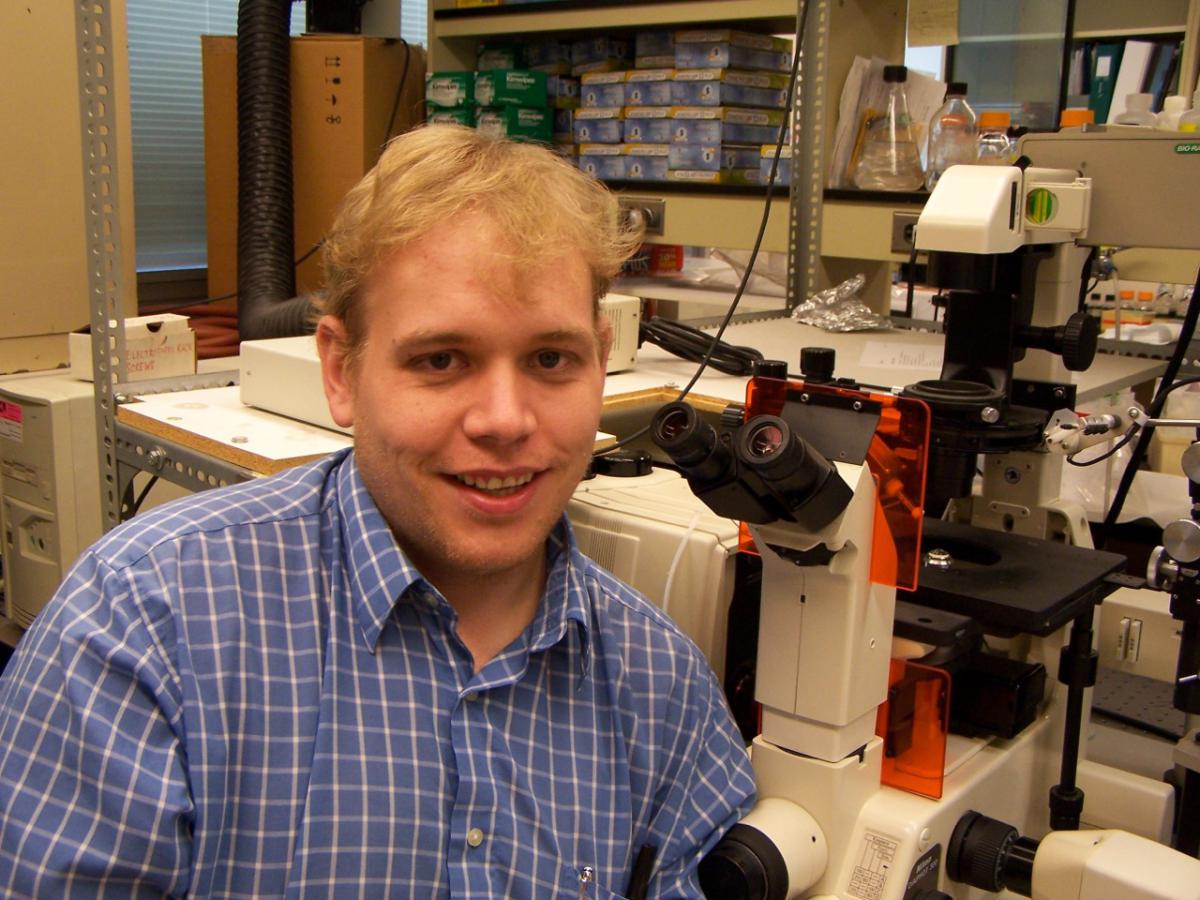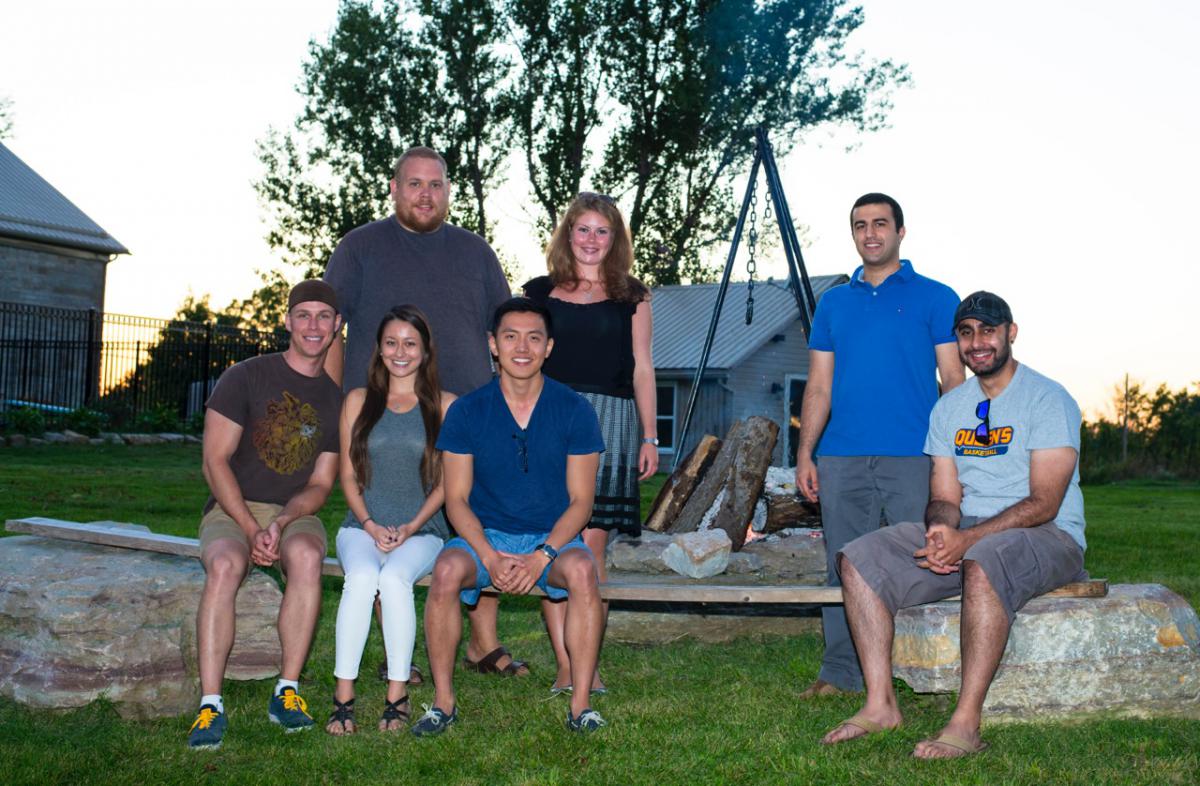Bringing innovation from the lab to life
September 8, 2014
Share

When asked why he was drawn to a career in neurosurgery, D.J. Cook jokes that his “mom made him do it,” but that it’s a field he’s found to be incredibly exciting.
“It’s exciting because it’s a relatively uncharted area of medicine,” he adds. “Neurosurgery and neuroscience are ripe for innovation.”
Currently, Dr. Cook is working in translational stroke research – a process to advance promising stroke therapies discovered in basic research to human clinical trials. It’s research like this that could help alleviate the effects of a stroke including paralysis, difficulty with speech, blindness and issues with sensation and perception.
“Our main goal is to identify new therapies that will enhance stroke recovery by protecting the brain at the time of stroke, restoring lost function with cell replacement or enhancing inherent recovery processes through neuromodulation,” says Dr. Cook. “Our research program has developed expertise in designing and performing key pre-clinical experiments in relevant models to validate the effectiveness of promising therapies and fine tune the design of subsequent human trials.”
Neuromodulation is a technique where either electric current or pharmaceuticals are delivered surgically through implantable devices that cause the brain to reorganize itself in a way beneficial for recovery.

Dr. Cook describes experiments aimed at validating therapies in clinically relevant models such that they can be tested in subsequent clinical trials with a higher degree of confidence in therapy effectiveness and safety. It is “the last but very difficult step” in pre-clinical therapy development. Current research projects in Dr. Cook’s lab include placing a gel implant into the brain that will slowly release drugs that promote reorganization of the brain and improved recovery, the lab is also exploring cortical and deep brain stimulation techniques to enhance rehabilitation therapy following stroke.
Dr. Cook’s research ties well into his career as a cerebrovascular neurosurgeon whose clinical practise is focused on fixing diseased blood vessels in the brain, including working with stroke patients, or patients at risk of stroke.
Dr. Cook recently received a grant of $1.2 million to help build infrastructure in the translational stroke research lab: $480,000 of the grant came from the Ontario Ministry of Research and Innovation (MRI) and the remaining funds were granted by the Canada Foundation for Innovation (CFI).
“Thanks to the CFI and MRI grants, our lab has been able to purchase infrastructure for intraoperative imaging and blood flow measurement, new tools to image the brain using MRI, and new cellular and molecular tools that help us look at the reorganization of the brain after stroke,” says Dr. Cook. “This equipment makes the Translational Stroke Research Program at Queen’s a very unique research platform for translational stroke and neuroscience research. It’s unlike any other research program in North America, probably in the world.”
Follow these links for more information on the Canada Foundation for Innovation and the Ontario Ministry of Research and Innovation.